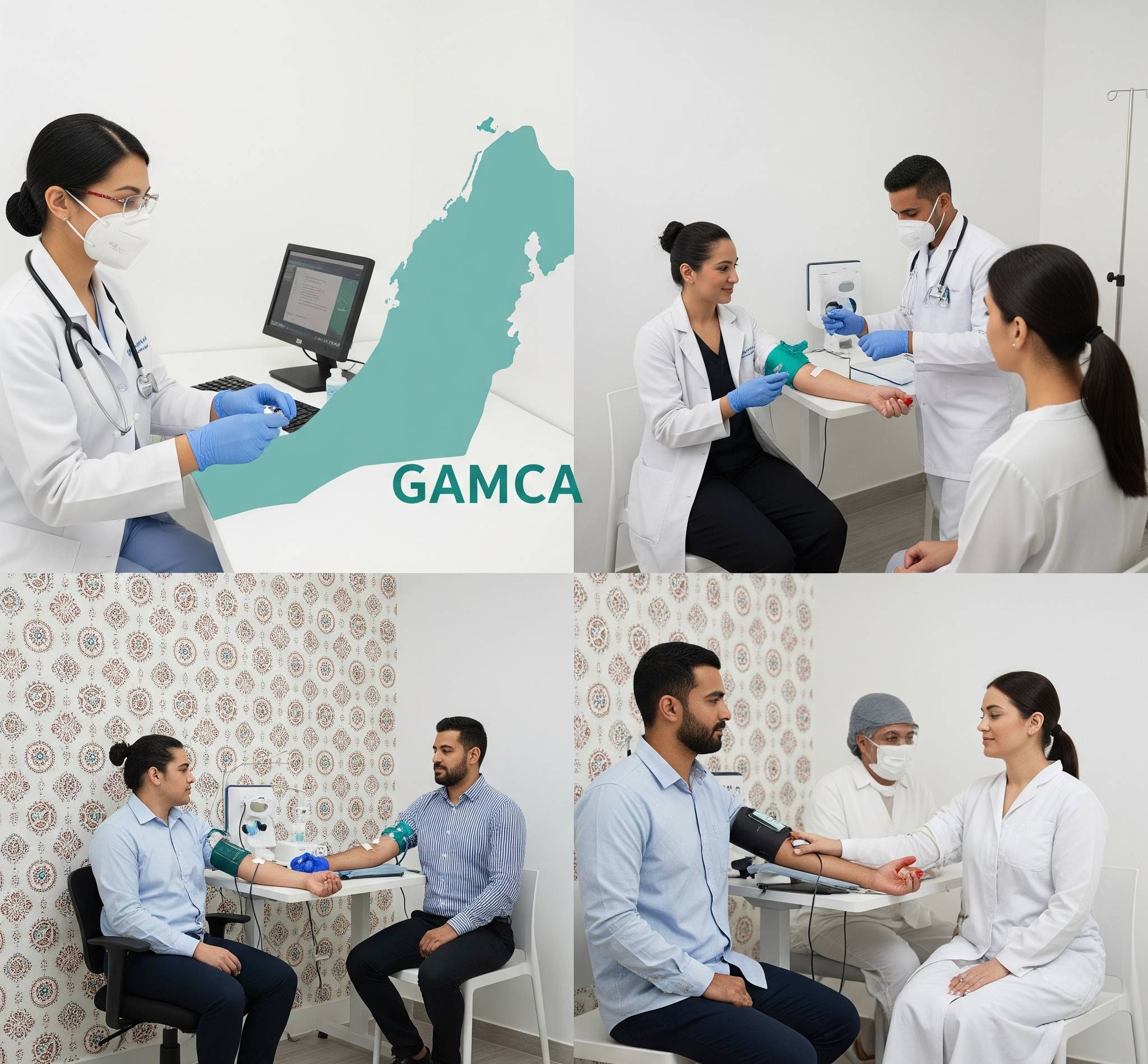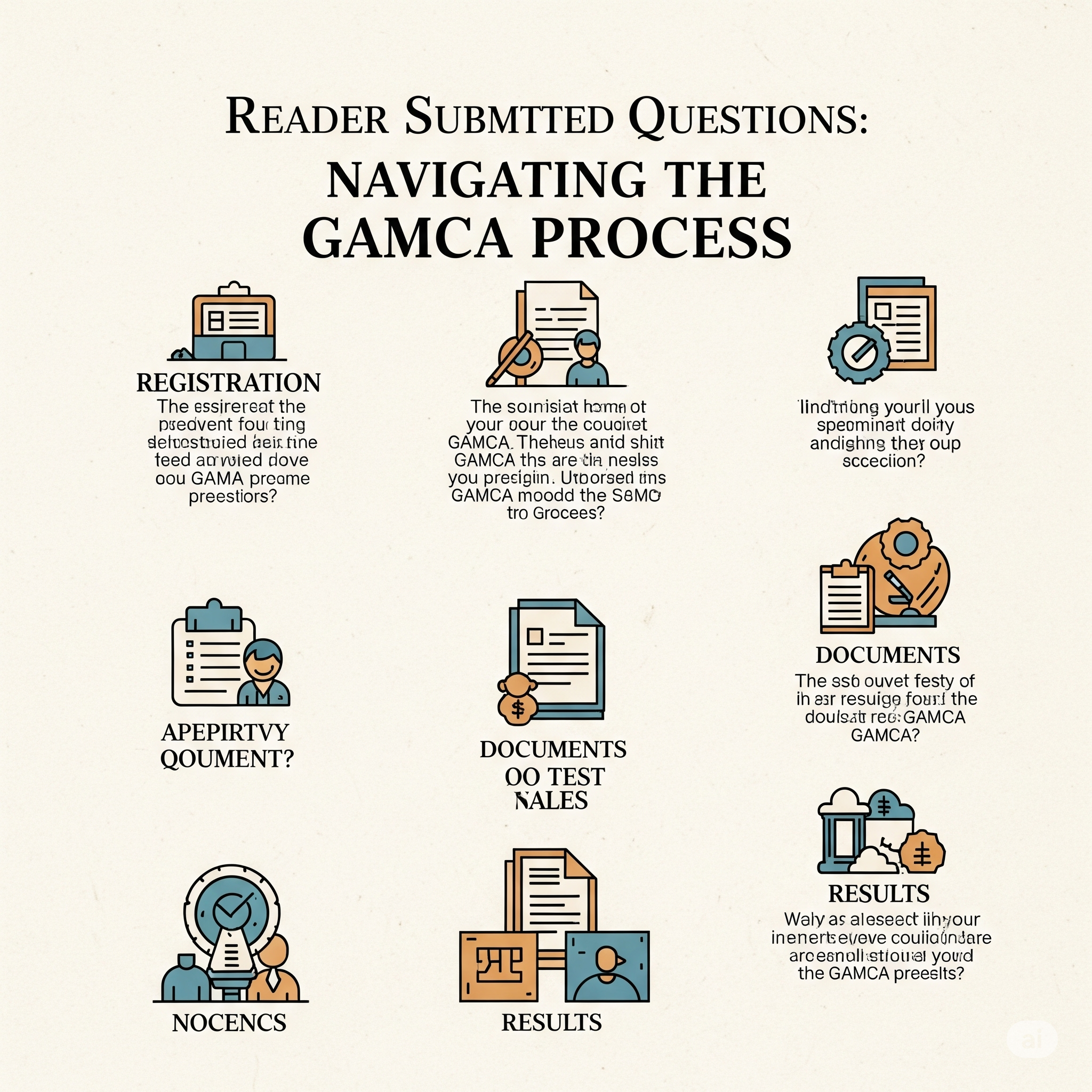
Although failing a GAMCA medical exam can be a discouraging setback, your hopes of landing a GCC employment are not always dashed. There are precise and well-defined procedures for re-examination, particularly for treatable illnesses, even though a formal direct appeal of a negative report is typically not a usual or guaranteed process.
Re-examination vs. Appeal
- Re-examination (Most Common Path): For applicants who are rejected because of a medical issue that can be treated, this is the usual process. There is a required waiting period before you may schedule a new doctor’s appointment. The most practical and popular choice is this one.
- Appeal (Limited Scope): Generally speaking, a direct appeal is an uncommon strategy saved for situations in which you can present solid proof of an obvious mistake in the test. An inaccurate diagnosis, a flawed test, or a mix-up of lab results could all fall under this category. You have the burden of proof in an appeal.
Steps to Take for Re-examination
If you receive an “unfit” medical report, follow these steps:
- Obtain a Detailed Report: First and foremost, get a copy of your detailed medical report from the GAMCA-approved center. It will specify the exact reason for your “unfit” status (e.g., high blood pressure, a scar on your chest X-ray, or low hemoglobin).
- Consult an Independent Specialist: Immediately take this report to a medical specialist in your home country who is an expert in the field of your condition (e.g., a pulmonologist for a lung issue, an endocrinologist for diabetes). Get a second, independent opinion and, if necessary, undergo new tests to confirm your current health status.
- Undergo Treatment: If the specialist confirms a treatable condition, follow their recommended treatment plan diligently. This may involve medication, lifestyle changes, or a minor procedure.
- Observe the Waiting Period: After receiving a negative report, there is a mandatory waiting period before you can reapply. This is typically 3 to 6 months, depending on the specific GCC country and the nature of the health condition.
- Reapply: Once you have completed your treatment and the waiting period has passed, you can book a new GAMCA medical appointment and undergo the full examination again. You should bring all documentation from your treating physician that proves your improved health status.
Disqualifying vs. Treatable Conditions
Understanding the reason for your unfitness is crucial, as some conditions are permanently disqualifying, while others allow for a re-examination.
- Treatable Conditions (Eligible for Re-examination):
-
- Uncontrolled or temporary infections (e.g., minor urinary tract infections).
- Unmanaged chronic illnesses like diabetes or hypertension can be controlled with medication and lifestyle changes.
- Anemia due to low hemoglobin levels.
- Mild abnormalities on a chest X-ray due to old, healed infections.
- Permanently Disqualifying Conditions:
-
- Infectious Diseases that pose a significant public health risk, such as HIV/AIDS, active Tuberculosis, and Hepatitis B and C.
- Severe psychiatric disorders.
- Certain severe physical disabilities would prevent you from performing job duties.
- Chronic renal failure.
Where to Seek Guidance
If you believe your report was factually incorrect or if you need help with the re-examination process, you should:
- Contact the Medical Center: The GAMCA-approved medical center that performed your test is your first point of contact. Explain the situation calmly and provide them with your new medical documentation.
Always remember to keep meticulous records of all medical reports, receipts, and communications, as they will be essential for any re-application or appeal process.



